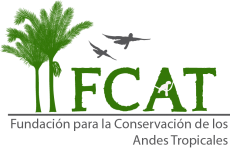Spring 2022
The Karubian Lab had an active Spring 2022! We were all glad to celebrate Mardi Gras in person again! Sarah Khalil and John Jones both defended outstanding PhD theses on fairywrens, and we wish them the best as they move onto the next steps in their careers. Graduating seniors Ellie Casement and Sloan Livaccari defended their honors theses and won departmental honors for their work. And, Megan Narasimhan joined the team as the Program Manager for the Ecuador Scholars Program, and has had a tremendous impact—welcome aboard Megan! We are all ready for summer to begin and to get back into field research!
Sarah Khalil has officially flown the nest (get it?) and started her NSF postdoc at the Cornell Lab of Ornithology, but not before enjoying her last Mardi Gras as a New Orleans resident! As part of her postdoc, she will continue to work to understand the mechanisms of color production in red-backed fairywrens and how variation in color leads to variation in individual reproductive success, as well as expanding her work among other avian systems. Sarah also will be attending the Animal Behavior Conference in Costa Rica this July where she will present her work on sexual selection in fairywrens, and will then meet back up with some of the Karubian lab in Ecuador where she will be an instructor for the Tulane tropical field ecology course at FCAT.
John Jones also successfully defended his PhD thesis in Spring 2022. He published studies from his thesis work on white-shouldered fairywrens in Behavioral Ecology and Sociobiology and Hormones and Behavior, and he has a number of additional papers in review. He spent the summer in New Orleans wrapping up his thesis chapters and is now on the hunt for a post-doctoral or faculty position.
Kaushik Narasimhan had a productive spring semester. Now that he has all of his data, he is working on his second and third chapters while submitting his first chapter for publication. He also had another paper published as co-author. He earned several grants this past semester, including the Lewis and Clark Grant. He plans to be an instructor for the Ecuador field course over the summer and work hard to finish up his dissertation.
Annelise Blanchette has been keeping busy this spring moving her dissertation ahead. She is currently working on the manuscript for her first chapter and plans to submit it soon. She’s been in the lab doing RNA extractions and out in the field collecting lizards for her second chapter. She was awarded the Gaige Fund Award for her work on Anolis cognition and ran a half marathon in March where she finished with a new personal best time and placed second in her age group. Her plan is to finish all field and experimental work this summer so she can begin writing in earnest come the fall semester.
Mike Ellis spent the spring semester wrapping up his Fulbright field work, travelling throughout NW Ecuador to collect forest vegetation data. He’ll use those data to calculate above ground biomass and model the impacts of natural and anthropogenic forces on forest structure, maturity, diversity, and disturbance. He’s also happy to report that his manuscript with collaborator A. Lele on variation in avian morphology driven by elevation over short vertical and horizontal distances was published in Biotropica. He is extraordinarily excited to be returning to NOLA and plans to eat many a crawdad.
Luke Anderson wrapped up his third major field season in Ecuador, where he was radio tracking white-bearded manakins and monitoring fruit availability at lek sites. He then had a chance to explore the Amazon for a week and returned to New Orleans just in time for the Mardi Gras festivities. He spent the remainder of the semester preparing for his prospectus defense—he passed and has advanced to candidacy! He returned to South America several times this summer, assisting with manakin-related projects at the FCAT station, presenting some preliminary findings at the Association for Tropical Biology and Conservation conference in Cartagena, Colombia, and serving as a teaching assistant for the Tulane undergraduate field course in Ecuador.
Judith Santano has had a BIG year! She’s officially done with her first year of the PhD and is proud of how much she has grown in this short time. She spent the spring busy with the Ornithology course, developing her research plans for this summer, and getting trained up to work with hummingbirds. Some highlights of this semester were getting to see Roseate Spoonbills for the first time, teaching kids about pollination at the zoo, and experiencing her first Mardi Gras! She has been working with Nancy Newfield to learn how to band hummingbirds so that she can study them in Ecuador. This summer she’ll be down at the FCAT station studying pollination across a gradient of regeneration. She’s incredibly excited to spend 3 months in the field working on her own research and learning from all the other scientists who will also be at the station. Hopefully she returns to New Orleans a hummingbird expert!
Jordan has continued to develop the Ecuador Scholars Program with support from the Stone Center for Latin American Studies, the Newcomb Institute, Tulane’s Office of the President, and other partners. The program welcomed its first cohort of students in Spring and is gearing up to expand this upcoming year. He had a busy summer and is looking forward to being on sabbatical in Fall 2022!
Read More


